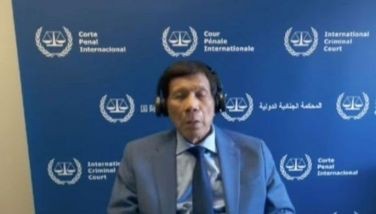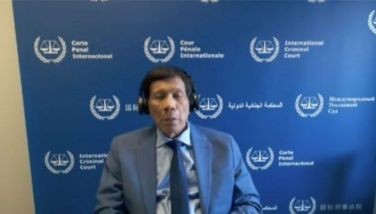Slanted media Coverage
There was this survey result conducted by one survey outfit indicating that 75 percent of the respondents say they are more hard up now (economically) than before. Covered extensively by a major media organization, which is known to be anti-administration, the information must have been intended to embarrass PGMA as part of the concerted anti-SONA flaks.
There are reasons why this impression was the kind generated on perceptive tv viewers. First, following the exposure of the tabulated result were a number of on-the-spot interviews of people all of whom clearly belonged to the low income group. Of course, from them only one kind of response could be expected - confirmation of the result. In fact, even if the people on the upper level were also asked the same question, their response would have been the same. For who among this group can say these days he is better off economically than say, a few months or a year ago?
A year ago fossil fuel was priced half of what it is today. Rice too was much cheaper and supply was not a problem. Inflation was in the vicinity of 4 percent and basic goods were much cheaper too. But today… Indeed, who but very few (was it 15 percent in the survey?) can say their state is better now than before? Even then a representative of these few should have been given some footages. In this way there would have been a semblance of balanced reporting.
The failure of the network to do this is another reason why it can be suspected of being bias in its coverage of the survey result. As what happened, all one could see were frustrations and grimaces of the nay sayers, which certainly created a deep psychological impact upon the viewers.
Perhaps, to sugar-coat its bias, the network showed a brief footage of a Malacañang spokesperson saying something against the survey result. But words and words could not upset the disturbing impact of closely-focused images of suffering faces. Really, this network is expert in delivering its message of discontent in a very subtle way.
This slanted coverage is sadly characteristic of most media outlets in this country. Whatever it is you are exposed to - tv, radio or print - the information you get is usually an excessive play up of what is bad or disagreeable in an event and very little of the positive aspects of it.
For instance, in a coverage about "salvaging", it is the shocking take of the slain with all its gore and grime that buffets your senses. You get too the hysteria and wails of the next of kin. But where's the part that shows how the neighbors tried to help the victim? Or how they manage to get a cab to rush him to the hospital?
And listen to radio newscasts on alleged irregularities committed by certain personalities. What you get are details of the supposed wrong-doing but seldom the explanation about why the accusation was not completely on the right track.
Again, on that cable network in the capital city - how did it treat the SONA? Very clearly one sided. For while it showed the President as she did her thing before Congress, the extent of the exposure was very limited. Such an important statement on the state of the country deserved a generous coverage, but the news body gave only snatches of it. On the other hand, it extensively showed the street actions of militant cadres, including the faces of leftlist Congressional representatives. And whose personal reactions were featured extensively on the screen? Those of the opposition figures, of course, and only snippets from one or two GMA friends.
Media organizations are, of course, business organizations. They exist to make money. The more listeners, viewers or readers they have, the higher is the margin they make. But media executives have their social responsibilities too. Social stability is foremost of these. By the nature of their outputs they can make or unmake a people's mind charting its course to wherever their combined intent wants it. They can therefore make or unmake a country. That's why despots hate them.
They say that if media have nothing but bad news to offer, it's not their fault but society's. But any right thinking media practitioner knows this is only half the truth. Viewed in their totality of impact over span of time, media exert a directive role on major social happenings, good or bad.
* * *
Email: edioko_uv@yahoo.com
- Latest
- Trending






























